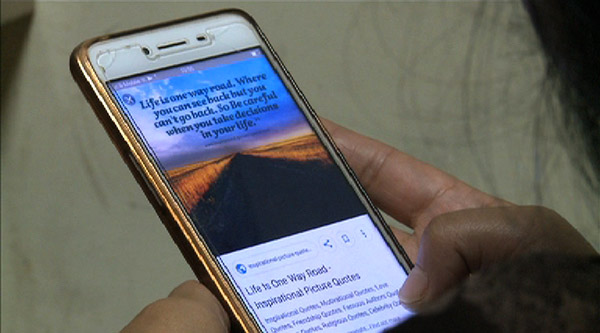 A study by a team of local and international doctors found that four in every 10 Bhutanese high school-going adolescents suffer from internet addiction.
A study by a team of local and international doctors found that four in every 10 Bhutanese high school-going adolescents suffer from internet addiction.
The findings of the study, which was carried out from May to November last year, were presented at the Fourth International Conference on Medical and Health Sciences, which ended yesterday in Thimphu.
Internet Addiction is defined as excessive use of internet to the extent it interferes with a person’s daily life.
The study found an internet addiction prevalence of 40 per cent among high school-going adolescents. 38 per cent suffer from moderate addiction, while two per cent are battling severe internet addiction.
Dr Karma Tenzin, a Deputy Dean of Faculty of Postgraduate Medicine with KGUMSB was among the team of doctors who conducted the study.
He says the addiction rate in Bhutan is among the highest in the South East Asian region.
“That could be also explained because of the fact that the number of people in terms of proportion who have access to internet is Bhutan is highest in the South East Asia. The percentage of subscription to mobile is 92 per cent, which is highest in the region,” Dr Karma Tenzin said.
The study found urban residence, internet facility at home, use of smartphones, social networking, night time use, use in hostels and other psychological co-morbidities, such as depression and stress, are significantly associated with internet addiction.
“People who are addicted to internet were also depressed and stressed out. But since our study is just one point contact, it’s a cross sectional study. So that’s why we cannot say that addiction is actually causing depression and stress. But we can definitely say from our study that the people who are addicted are definitely depressed and stressed out,” Dr Karma Tenzin said.
He added as internet addiction is a growing concern, the study report would be valuable information in designing preventive interventions at home and schools.
The research paper is to be submitted to an international journal for publication. The team then plans to involve and engage with relevant stakeholders to come up with necessary interventions.
The study adopted a mix of quantitative and qualitative methods.
The quantitative findings were informed by a survey of 721 secondary school-going adolescents from six Central Schools and six day scholar schools.
Of the total 721 rimary respondents, 13 students were interviewed for the qualitative part of the study.
Internet addiction is also sometimes referred to as computer addiction, compulsive Internet use, Problematic Internet Use (PIU), Internet dependence, or pathological Internet use.
People who are addicted to the Internet often experience negative emotions or withdrawal symptoms when their Internet access is restricted.












